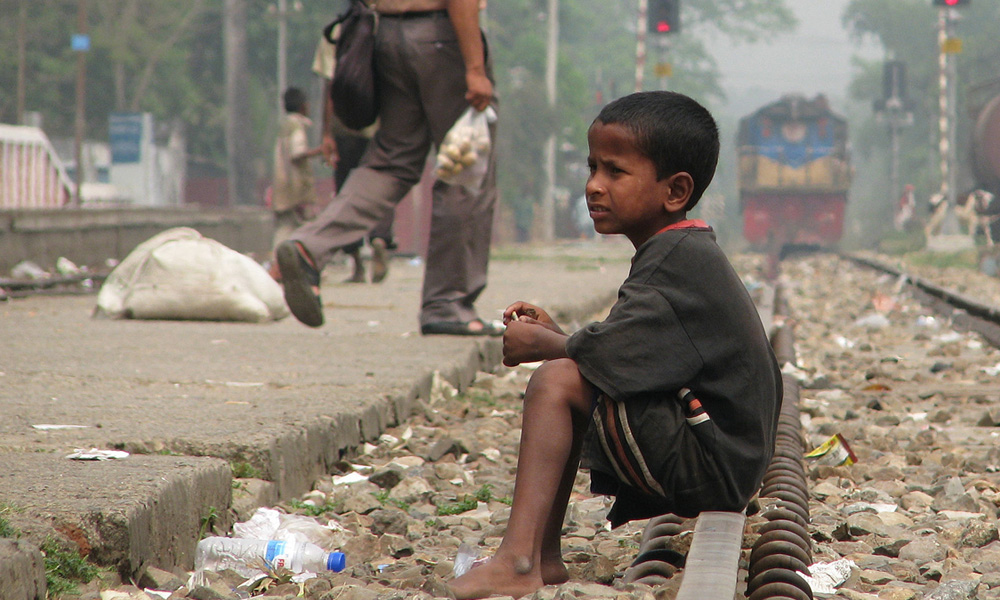
Image Credits: Wikimedia
Odisha: Study Reveals 57% Street Children Deprived Of Education Amid COVID-19 Pandemic
Writer: Ritu Yadav
A journalism undergrad with experience in Reporting News, Content Writing and Public Speaking, Blogging. Skilled in Communication, Public Speaking, Management, Interpersonal skills and Leadership. Her interest involves writing about issues that generally go unnoticed, with a strong interest in politics and social welfare.
Odisha, 17 March 2021 5:15 AM GMT
Editor : Prateek Gautam |
A free soul who believes that journalism, apart from politics, should stand for social cause and the environment.
Creatives : Abhishek M
" An engineer by profession, Abhishek is the creative producer of the team, graphic designing is his passion and travelling his get away. In more ways than one, he makes the content visually appealing."
The study also found that nearly 17 per cent of these children lived in unsafe locations under hazardous conditions and were subjected to different types of exploitation.
Nearly 57 per cent of street children living in Odisha's urban areas were deprived of free and mandatory education during the pandemic. This has been jointly assessed by the Orissa State Commission Protection of Child Rights (OSCPCR), UNICEF, and the Odisha chapter of Save the Children.
The study also found that nearly 17 per cent of these children lived in unsafe locations under hazardous conditions and were subjected to different types of exploitation.
The study was conducted with inputs from over 972 children living on the streets of five cities, including Bhubaneswar, Cuttack, Rourkela, Berhampur, and Puri.
Nearly 47 per cent of these children lived at the same location under deprived circumstances for more than five years. However, they were never identified or rehabilitated, the quantitative survey revealed.
A member of the survey team said, "The idea was to study and understand the status of children who live off the streets either with their parents or with their relatives during the pandemic. The study will also be shared with the state government, and measures will be taken to provide help to these children at the policy level as well,'' The Indian Express reported.
As per the study, these children's family income varied between ₹5,000 to ₹10,000, an estimate that was dramatically affected during the nationwide lockdown. The income sources included daily wage contracted labour, rag-picking, begging, domestic help, and street vendors.
The study's other findings showed that 56 per cent of the children sampled had relocated more than once to find a more secure place to live during the pandemic. Nearly 66 per cent of the families surveyed lacked ration cards or had no access to free ration.
Around 5 per cent of children were underweight and stunted, while 37 per cent were suspected to be malnourished as per the study.
Apart from that, the study raised concerns regarding pandemic awareness and revealed that 87 per cent of the children were aware of COVID-19 and took precautionary measures to ensure safety.
Read Also: 44% Of Engineering Students Want To Study In Mother Tongue, Mostly Prefer Hindi, Tamil: Survey
 All section
All section














